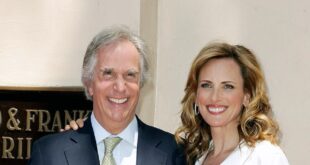
“Powerful individuals” at the BBC are making the lives of their colleagues “unbearable”, the corporation’s chairman has said, after a review into its workplace culture.
The independent report, sparked by the Huw Edwards scandal, was carried out by Change Associates, the same management consultancy that led a similar review in 2013, following the Jimmy Savile scandal.
BBC chairman Samir Shah told staff ahead of the report’s release on Monday morning: “There is a minority of people whose behaviour is simply not acceptable. And there are still places where powerful individuals – on and off screen – can abuse that power to make life for their colleagues unbearable.”
He said the report made recommendations to “prioritise action over procedural change”, as well as addressing “deep-seated issues” including staff not feeling confident enough to speak up.
Mr Shah added: “In the end, it’s quite simple: if you are a person who is prepared to abuse power or punch down or behave badly, there is no place for you at the BBC.”
While the review, which heard from around 2,500 employees and freelancers from 19 different countries, found no evidence of a toxic culture within the corporation, some staff said there was “a minority of people at the BBC – both on and off-air – who were able to behave unacceptably without it being addressed”.
The report said: “Even though they are small in number, their behaviour creates large ripples which negatively impact the BBC’s culture and external reputation.”
It said these people were “dotted across the organisation in different functions and departments,” and were “often in positions where power could be abused”.
While no specific names were mentioned in the report, it did note “some names were mentioned several times”.
Some considered ‘indispensable’
One example of poor behaviour given included an “untouchable” presenter being “called out for exceptionally inappropriate language.” It said that while “a report was made” and sanctions promised, a senior manager who was in the room at the time of the incident was “perceived as deferring so as not to rock the boat”.
The report went on to warn that “at its worst” the corporation “rewards” such individuals “by providing little or no consequence to their actions”.
It also recognised that some of those displaying “unacceptable behaviour” were perceived as “indispensable” to the corporation, and that by moving “potentially vexatious issues” to formal grievance without appropriate due diligence, the BBC was “tolerating” the problem.
It said that by keeping those who formally raised an issue “in the dark about progress and outcomes,” it was unfairly punishing them.
The BBC Board has fully accepted the report and its findings, as has BBC management.
Director-General Tim Davie called the report “an important moment for the BBC and the wider industry”.
He said the corporation would implement the recommendations “at pace,” making sure that BBC values are “lived and championed by the whole organisation each and every day.”
Actions being taken include:
• A strengthened code of conduct, with specific guidance for on-air presenters
• A more robust disciplinary policy, with updated examples of misconduct and clear consequences
• All TV production partners must meet Creative Industries Independent Standards Authority (CIISA) industry standards
• A new “Call It Out” campaign to promote positive behaviour, empower informal resolution and challenge poor conduct
• Clear pledges for anyone raising concerns, setting out what they can expect from the BBC
Further actions include succession planning for the most senior on-air roles, a new “Resolving Concerns Helpline”, more training for managers and clearer behaviour expectations for freelancers.
The BBC has been under pressure to act after a string of complaints against some of its top talent over the last 12 months.
This breaking news story is being updated and more details will be published shortly.
Please refresh the page for the fullest version.
You can receive breaking news alerts on a smartphone or tablet via the Sky News app. You can also follow us on WhatsApp and subscribe to our YouTube channel to keep up with the latest news.
 Latest World Breaking News Online News Portal
Latest World Breaking News Online News Portal








